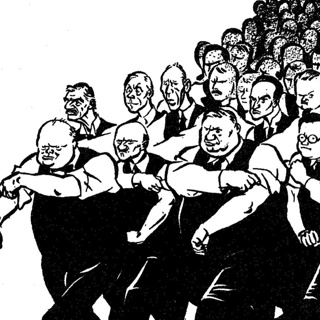Jaksokuvaus
Britain, along with France, might well have declared war against Germany in September 1939. But that didn’t lead to much fighting for the next eight months. There was some action at sea, during which the British Royal Navy put an end to German surface raiders, though it had still to face the worst threat to its maritime trade, which came not from ships on the surface, but from submarines. On land, in the west, there was practically no action, in what came to be known as ‘the phoney war’. It wasn’t phoney for the Poles of course, who were being bombed and invaded, first only by the Germans from the west, but soon by the Soviets from the east too, rather confirming what many suspected, that the Nazi-Soviet pact included a secret protocol dividing up Poland between the two countries. The Pact also provided the Soviets with the confidence to invade Finland which they did at the end of November. Britain and France decided to come to the Finns’ aid by landing troops at the Norwegian port of Narvik, but it took them so long that Finland had been defeated, after some heroic resistance, before the Allies could help. However, the Allies went on with the idea of landing at Narvik,to cut Germany’s supplies of iron ore from Sweden, most of which went through the port. Unfortunately, they took so long and were so indiscreet in their plans, that Hitler pre-empted them, invading and occupying Denmark and southern Norway, and getting troops to Narvik first, able to resist the Allied landings when they finally happened. Though marginal in itself, the Narvik fiasco prompted a major debate in the British House of Commons, in which the government, although it won a final vote of confidence, did so with so small a majority that Chamberlain felt major changes had to be made. He decided it was time to form a national government, in coalition with Labour and the Liberals. That, though, proved impossible to pull off if he stayed on as Prime Minister. He stood down and, as the front runner to replace him, Halifax, said he wasn’t prepared to take the post, it inevitably fell to Winston Churchill to shoulder the burden. Labour and the Liberals joined him. So it was together behind him, as depicted by David Low in a new cartoon, that they faced the next, far worse crisis that was about to hit Britain and France. Illustration: ’All behind you, Winston’, cartoon by David Low, May 1940. In the front row from left: Churchill, Attlee, Ernie Bevin and Herbert Morrison. Behind Churchill is Chamberlain. Music: Bach Partita #2c by J Bu licensed under an Attribution-NonCommercial-No Derivatives (aka Music Sharing) 3.0 International License
